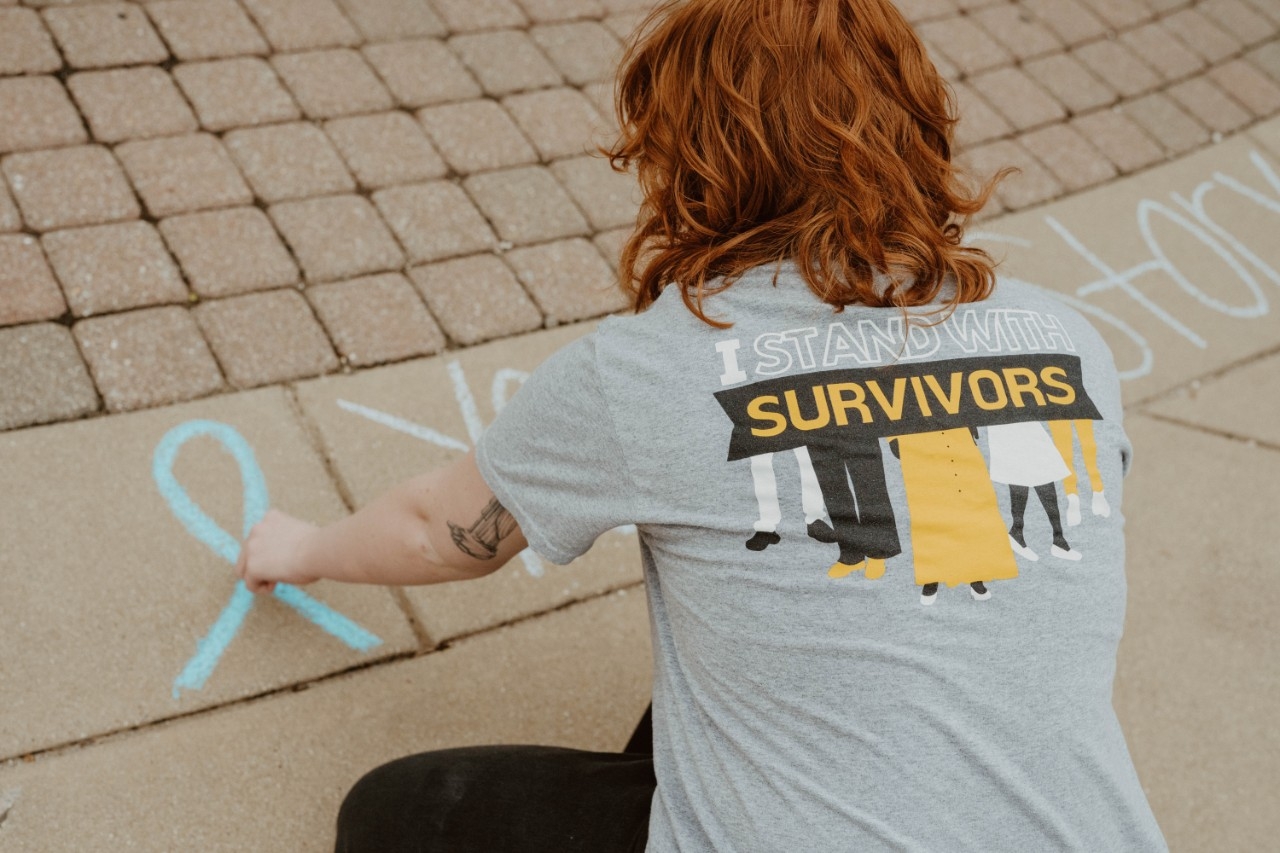
"We want to create a more supportive and more responsive campus community."
Massey, who has served as NVP’s director since 2019, ensures the work advocates are doing is evidence based and trauma informed.
NVP also provides programming and training, like prevention education workshops, to departments on campus.
Throughout April, NVP is hosting several events:
But NVP’s biggest event of the month is Take Back the Night, which takes place Wednesday, April 24, in the University Center Ballroom at 5 p.m., and is focused on showing up as an ally supporter of survivors of violence. The event will begin with a vendor fair centered on holistic healing and end with featured keynote speaker Tonjie Reese.
Reese is founder of eleven24, a member of the National Intimate Partner Violence (IPV) Prevention Council, a coach for ValorUS Leap program and an advisor for the National Resource Center on Domestic Violence.
“The vendor fair is focused around what healing can look like,” Massey says. “Students, or anyone who attends, can get information about how you can heal from trauma. It will be things that people don’t always think about. People typically think of talk therapy, but there are other ways to heal.”
The events are just one way to bring awareness to such a sensitive issue. But Massey wants people to know that NVP’s efforts aren’t limited to just the month of April.
She encourages faculty and staff to get involved by showing up at events and sharing information on campus with their students. There are also opportunities for faculty to incorporate workshops about consent and bystander culture in their assignments or curriculum, she says.
NVP hosts interns from NKU’s Social Work program and offers a student ambassador program, which is a yearlong commitment for those want to participate.
In the future, Massey hopes that more students can become involved as ambassadors and help their peers become aware of the services that NVP provides.
“Students are better messengers to other students and are more relatable,” she says. “The more students we have actively involved in our office, the more we get coming in for service. Students are more likely to come in if another student is encouraging them to do that.”